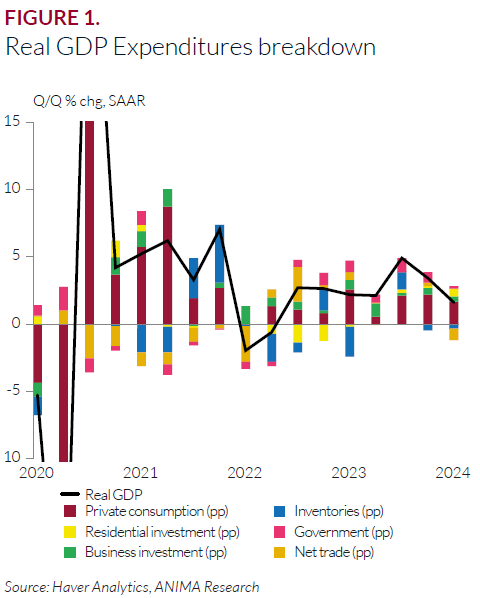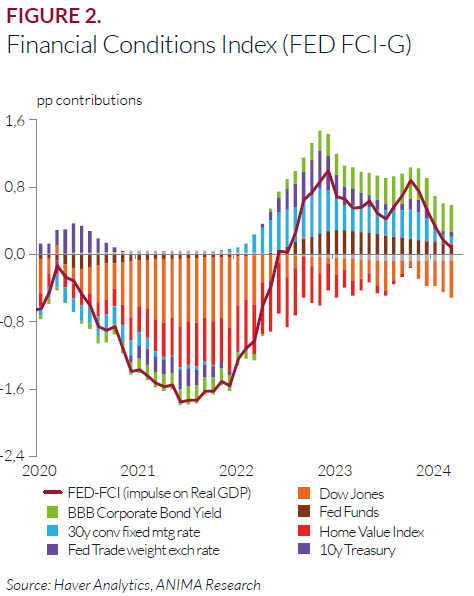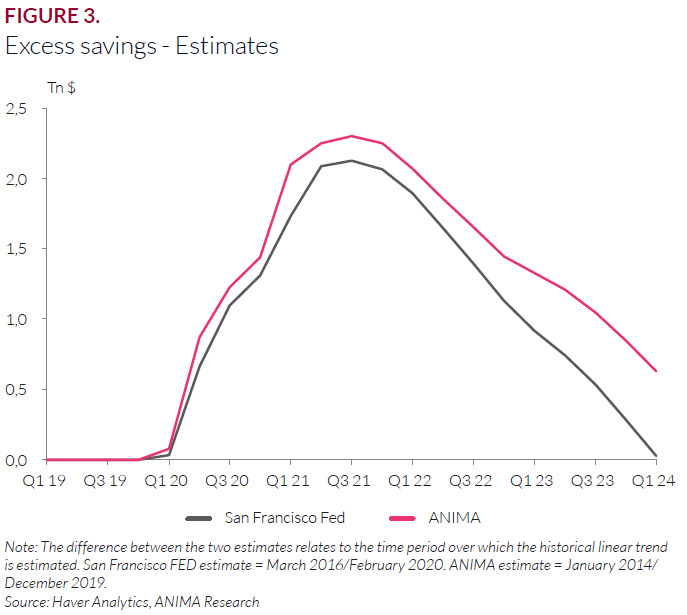Choose a Profile
Vuoi visitare il sito con il profilo ?
Sì, voglio accedere con il profilo
-
Vai al sito
-
English
-
Investitore Privato / Fondo Pensione
-
Consulente/Collocatore
-
Investitore Istituzionale
-
ANIMA Holding/Investor Relations
No, voglio accedere con il profilo
*O Fondo Pensione
L'accesso al sito con il profilo selezionato equivale a presa visione ed accettazione delle Avvertenze Legali, dell'Informativa sulla Privacy e delle Cookie Policy. Indicazioni per la scelta del profilo utente sono disponibili nella sezione "Tipologie di utenti".;
INVESTITORE PRIVATO (o FONDO PENSIONE)
Si qualifica come Investitore Privato il soggetto che non può essere incluso nelle tipologie di “Investitore Istituzionale" o “Consulente /Collocatore". Questa sezione comprende anche le informazioni relative al fondo pensione aperto Arti & Mestieri e la relativa Area Riservata ai clienti, distributori e alle aziende convenzionate.
CONSULENTE/COLLOCATORE
Accedendo alla sezione del sito riservata al “Consulente/Collocatore", l'utente deve acconsentire, confermare e certificare di appartenere ad una tipologia di soggetti di seguiti identificati. Sono definiti “Consulenti/Collocatori":
a) i soggetti che operano per conto di intermediari autorizzati alla prestazione dei servizi di investimento ai sensi del D.lgs. n. 58/98 (es. esponenti aziendali e private banker), i consulenti finanziari autonomi e i consulenti finanziari abilitati all'offerta fuori sede come definiti rispettivamente ai sensi dell'art. 18-bis e dell'art. 31 del D.lgs. n. 58/98;
b) il personale qualificato di investitori professionali di diritto, come definiti ai sensi dell'art. 35, comma 1, lett. d) del Regolamento Consob in materia di Intermediari. Per personale qualificato si intende un soggetto che presta la propria attività lavorativa nell'area investimenti, finanziaria o commerciale con adeguata esperienza nel settore finanziario, in una posizione professionale che presuppone lo svolgimento di attività di natura finanziaria (quale investimento/disinvestimento, monitoraggio del mercato) per conto dell'investitore professionale.
Questa sezione comprende anche l'area operativa riservata ai collocatori (SAR) e l'area riservata ai consulenti finanziari (Area premium).
INVESTITORE ISTITUZIONALE
Accedendo alla sezione del sito riservata all'“Investitore Istituzionale", l'utente deve acconsentire, confermare e certificare di essere un “Cliente professionale di diritto" sulla base della seguente definizione.
Sono definiti “Clienti professionali di diritto":
(1) i soggetti che sono tenuti ad essere autorizzati o regolamentati per operare nei mercati finanziari,
siano essi italiani o esteri quali:
a) banche;
b) imprese di investimento;
c) altri istituti finanziari autorizzati o regolamentati;
d) imprese di assicurazione;
e) organismi di investimento collettivo e società di gestione di tali organismi;
f) fondi pensione e società di gestione di tali fondi;
g) i negoziatori per conto proprio di merci e strumenti derivati su merci;
h) soggetti che svolgono esclusivamente la negoziazione per conto proprio su mercati di strumenti finanziari e che aderiscono indirettamente al servizio di liquidazione, nonché al sistema di compensazione e garanzia (locals);
i) altri investitori istituzionali;
l) agenti di cambio;
(2) le imprese di grandi dimensioni che presentano a livello di singola società, almeno due dei seguenti requisiti dimensionali:
- totale di bilancio: 20 000 000 EUR,
- fatturato netto: 40 000 000 EUR,
- fondi propri: 2 000 000 EUR.
(3) gli investitori istituzionali la cui attività principale è investire in strumenti finanziari, compresi gli enti dediti alla cartolarizzazione di attivi o altre operazioni finanziarie.
ANIMA HOLDING / Investor Relations
Questa sezione è dedicata alle relazioni con la comunità finanziaria, in particolare con analisti ed investitori istituzionali. Permette di accedere, consultare e scaricare informazioni sul Gruppo Anima Holding, compresi bilanci e relazioni, comunicati stampa e avvisi finanziari, presentazioni, informazioni sul titolo, nonché aggiornamenti sulla copertura degli analisti, i rating e il calendario degli eventi societari.
I visitatori del presente sito sono pregati di prendere visione delle seguenti avvertenze legali. L'accesso al sito implica la conoscenza e la piena accettazione delle stesse.
Quanto contenuto in questo sito è pubblicato ad uso esclusivamente informativo sui prodotti ed i servizi offerti dalle società del Gruppo Anima (“ANIMA”).
Il contenuto del sito e copia del materiale ivi pubblicato non possono essere trasmessi negli Stati Uniti e non costituiscono un'offerta di vendita di prodotti o servizi negli Stati Uniti, a soggetti statunitensi nell’accezione di cui alla Regulation S dello United States Securities Act del 1933 (“US Persons”).
ANIMA non ha espresso alcuna raccomandazione in merito ai prodotti e servizi ivi descritti. L’investitore deve avvalersi di un consulente specializzato prima di compiere qualunque scelta di investimento.
Il sito e le informazioni ivi contenute non sono dirette a persone in giurisdizioni nelle quali, per qualsiasi ragione, la pubblicazione o l’accesso al sito siano proibiti. Le persone il cui accesso è così limitato non possono accedere al presente sito. Qualunque accesso al presente sito dall’esterno del territorio della Repubblica Italiana sarà fatto sotto l’esclusiva responsabilità dell’utente nel rispetto delle leggi e regolamentazioni applicabili.
Senza pregiudizio di quanto precede, non si intende effettuare alcuna offerta, vendita e/o distribuzione dei prodotti e dei servizi descritti nel presente sito in alcuna giurisdizione e ad alcuna persona ove ciò sia illegale.
ANIMA non ha espresso alcuna raccomandazione in merito ai prodotti e servizi ivi descritti. L’investitore dovrà avvalersi di un consulente specializzato prima di compiere qualunque scelta di investimento.
Prima dell'adesione e comunque prima di effettuare qualunque investimento deve essere letto attentamente, il documento contenente le informazioni chiave per gli investitori (KIID) che deve essere consegnato dal proponente all’investimento, insieme all'Appendice che costituisce un glossario dei termini tecnici utilizzati, e a qualunque altro documento previsto dalla normativa di tempo in tempo vigente.
E' altresì consigliata la visione del Regolamento di Gestione, di cui si consiglia un'attenta lettura prima di effettuare una qualsivoglia scelta d'investimento; tutti i documenti contrattuali dei prodotti e servizi offerti da ANIMA sono reperibili nell'apposita sezione Documentazione Legale .
Le performance passate non sono indicative né garanzia di rendimenti futuri. La Società non rilascia alcuna garanzia ed assicurazione in relazione alle future performance.
ANIMA impiegherà ogni ragionevole sforzo per far si che le informazioni contenute nel presente sito internet siano aggiornate ed accurate alla data di pubblicazione; non viene rilasciata tuttavia alcuna garanzia per quanto attiene l’accuratezza, affidabiltà o completezza delle informazioni. ANIMA declina esspressamente ogni responsabilità in ordine ad eventuali perdite derivanti, direttamente od indirettamente, dall’utilizzo delle informazioni o dalle azioni poste in essere sulla base di tali informazioni.
ANIMA non è in alcun modo responsabile per l’accuratezza dei contenuti di altri siti Internet eventualmente collegati a questo sito. L’esistenza di un collegamento ad un altro sito non implica approvazione da parte di ANIMA delle informazioni fornite. Il contenuto del presente sito, ivi inclusi i dati, le informazioni, i grafici, i documenti, le immagini, i loghi e il nome del dominio, sono proprietà esclusiva di ANIMA e, salvo diversa specificazione, sono coperte da copyright e ogni altra regolamentazione inerente alla proprietà intellettuale.
In nessun caso è consentita la copia, riproduzione o diffusione delle informazioni contenute nel presente sito.
INFORMATIVA EX ART. 13 DEL REGOLAMENTO UE 679/2016
Ai sensi del Regolamento UE 2016/679 recante "Regolamento generale sulla protezione dei dati" ("Regolamento EU/2016/679"),Anima SGR S.p.A. (di seguito "la Società"), in qualità di Titolare del trattamento, è tenuta a fornire informazioni in merito all'utilizzo dei dati personali dei suoi clienti.
La Società ha nominato il "responsabile della protezione dati" (c.d. "Data Protection Officer" o "DPO") previsto dal Regolamento, contattabile al seguente indirizzo e-mail: dpo@animasgr.it
La presente informativa si riferisce anche ai trattamenti effettuati dai soggetti che svolgono, per conto della Società, i compiti di natura tecnica e organizzativa descritti nel paragrafo 1.
1. Finalità e modalità del trattamento. Natura del conferimento dei dati.
I dati personali in possesso della Società sono forniti direttamente dal soggetto cui i dati personali si riferiscono ("Interessato"). I dati personali possono inoltre essere acquisiti dalla Società nell'esercizio della propria attività o da soggetti terzi (ad es. banche ed altri intermediari finanziari, ecc.). Per identificare e verificare l'identità dell'eventuale titolare effettivo, ai sensi della normativa contro il fenomeno del riciclaggio ed il finanziamento del terrorismo (D. Lgs. 231/07 e regolamenti attuativi), la Società può chiedere all'Interessato informazioni pertinenti ovvero acquisire i dati personali del titolare effettivo direttamente (mediante il ricorso a pubblici registri, elenchi, atti, documenti conoscibili da chiunque) o per il tramite dei soggetti incaricati della distribuzione.
I dati personali sono trattati nell'ambito della normale attività della Società per le seguenti finalità:
a) finalità strettamente connesse e strumentali alla gestione dei rapporti con l'Interessato.
Il conferimento dei dati personali necessari a tali finalità non è obbligatorio, ma il rifiuto di fornirli può comportare – in relazione al rapporto tra il dato e il servizio richiesto – l'impossibilità della Società a prestare il servizio stesso. Il loro trattamento non richiede il consenso dell'interessato;
b) adempimento di obblighi imposti da leggi, da regolamenti o dalla normativa comunitaria (es.: obblighi di adeguata verifica della clientela e del titolare effettivo, comunicazioni di informazioni dell'Interessato in conformità a quanto previsto dalle disposizioni in materia di prevenzione del riciclaggio e di contrasto del finanziamento del terrorismo, o da disposizioni delle Autorità di Vigilanza).
Il conferimento dei dati personali necessari a tali finalità è obbligatorio e il relativo trattamento non richiede il consenso dell'interessato;
c) altre finalità funzionali all'attività della Società quali:
- la rilevazione del grado di soddisfazione della clientela sulla qualità dei servizi resi e sull'attività svolta dalla Società, eseguita, anche tramite società specializzate, mediante interviste personali o telefoniche, questionari, ecc.;
- la promozione e la vendita di prodotti e servizi della Società o di società terze, effettuate attraverso lettere, telefono, materiale pubblicitario, sistemi automatizzati di comunicazione, profilazione telematica sotto "qualsiasi forma di trattamento automatizzato di dati personali consistente nell'utilizzo di tali dati personali per valutare determinati aspetti personali relativi a una persona fisica, in particolare per analizzare o prevedere aspetti riguardanti il rendimento professionale, la situazione economica, la salute, le preferenze personali, gli interessi, l'affidabilità, il comportamento, l'ubicazione o gli spostamenti di detta persona fisica";
- l'elaborazione di studi e di ricerche di mercato, effettuate mediante interviste personali o telefoniche, questionari, invio di materiale informativo su prodotti e servizi forniti dalla Società, anche mediante il trattamento di dati personali di profilazione sotto "qualsiasi forma di trattamento automatizzato di dati personali consistente nell'utilizzo di tali dati personali per valutare determinati aspetti personali relativi a una persona fisica, in particolare per analizzare o prevedere aspetti riguardanti il rendimento professionale, la situazione economica, la salute, le preferenze personali, gli interessi, l'affidabilità, il comportamento, l'ubicazione o gli spostamenti di detta persona fisica".
Il conferimento dei dati necessari alle finalità di cui alla precedente lett. c) non è obbligatorio ed il loro trattamento richiede il consenso dell'interessato.
In relazione alle finalità descritte, il trattamento dei dati personali avviene mediante elaborazioni manuali o strumenti elettronici o comunque automatizzati, secondo logiche strettamente correlate alle finalità stesse e comunque in modo da garantire la riservatezza e la sicurezza dei dati personali.
Per taluni servizi, la Società si avvale di società di propria fiducia che, in qualità di Responsabili del trattamento, svolgono compiti di natura tecnica od organizzativa, quali: la prestazione di servizi di stampa, imbustamento, trasmissione, trasporto e smistamento di comunicazioni; la prestazione di servizi informatici relativi alla fornitura, sviluppo e manutenzione di sistemi software e hardware necessari o comunque funzionali allo svolgimento dei servizi prestati dalla società, la rilevazione del grado di soddisfazione o dei bisogni della clientela; l'attività di intermediazione bancaria e finanziaria; l'attività di revisione contabile e certificazioni di bilancio.
2. Categorie di dati oggetto di trattamento.
In relazione alle finalità descritte nel precedente paragrafo 1, la Società e gli altri soggetti che svolgono, per conto o in favore della stessa, i compiti descritti al paragrafo 1 che precede, trattano i dati personali relativi a: denominazione/nominativo, indirizzo e altri elementi di identificazione personale; codice fiscale; estremi identificativi di rapporti bancari (es. IBAN); i dati relativi alla famiglia e a situazioni personali, i dati relativi al grado di istruzione e al lavoro dell'Interessato nonchè, per le società, i dati personali del rappresentante legale/procuratore.
Nella prestazione dei servizi e delle attività indicate nella presente informativa, la Società non necessita di trattare dati personali che l'art. 9 del predetto Regolamento definisce come "particolari", (quali, ad esempio, i dati personali idonei a rivelare lo stato di salute, le opinioni politiche e sindacali, le convinzioni religiose, ecc.).
3. Categorie di soggetti ai quali i dati possono essere comunicati o che possono venirne a conoscenza in qualità di responsabili o incaricati del trattamento.
Per il perseguimento delle finalità descritte al paragrafo 1, la Società ha necessità di comunicare i dati personali degli Interessati a soggetti terzi, appartenenti alle seguenti categorie:
- soggetti che svolgono, per conto della Società, i compiti di natura tecnica od organizzativa indicati nel paragrafo 1, ivi compresa la società di revisione contabile;
- intermediari bancari e finanziari, tra cui la Banca Depositaria, al fine di eseguire le disposizioni impartite e regolare i corrispettivi previsti dai contratti stipulati;
- Autorità e Organi di Vigilanza, Autorità Giudiziaria e in generale, soggetti, pubblici o privati, con funzioni di rilievo pubblicistico (quali, ad esempio, Banca d'Italia, Consob, UIF, ecc.);
- società e/o professionisti esterni di cui si avvale la Società nell'ambito di rapporti di assistenza e consulenza;
-
società terze per il trattamento finalizzato ad iniziative promozionali, ove l'Interessato abbia manifestato il proprio consenso.
I destinatari delle comunicazioni descritte nella presente informativa operano in totale autonomia, in qualità di distinti titolari del trattamento, o, in taluni casi, sono stati designati dalla Società quali responsabili del trattamento. Il loro elenco, costantemente aggiornato, è disponibile presso la Società.
Alcune categorie di persone, in qualità di incaricati del trattamento, possono accedere ai dati personali dei clienti ai fini dell'adempimento delle mansioni loro attribuite. In particolare, la Società ha designato, quali incaricati del trattamento dei dati dei clienti, i dipendenti della Società medesima, ivi compresi gli amministratori di sistema, ai fini dell'adempimento delle mansioni loro attribuite, i prestatori di lavoro temporaneo utilizzati dalla Società, gli stagisti.
Possono inoltre venire a conoscenza dei dati personali, in occasione dell'esecuzione dei compiti loro conferiti, anche i soggetti designati dalla Società quali Responsabili del trattamento. L'identità dei responsabili del trattamento designati dalla Società può essere conosciuta con le modalità indicate nel successivo paragrafo 6.
I dati personali trattati dalla Società e dai soggetti che svolgono per conto della stessa i compiti di natura tecnica e organizzativa descritti nel paragrafo 1, non sono oggetto di diffusione.
Al solo fine di una migliore esecuzione del rapporto contrattuale in essere, i dati personali potranno essere trattati anche da collaboratori/partner stabiliti in territorio extracomunitario individuati quali Responsabili del trattamento dei dati personali e tenuti al rispetto della vigente normativa sulla privacy (i.e. Regolamento UE/2016/679provvedimenti attuativi del Garante) in forza alternativamente di (i) una decisione di adeguatezza adottata dal Garante oppure di (ii) uno specifico contratto - redatto in conformità alle clausole contrattuali modello predisposte dal Garante - così come previsto dall' art. 46, comma 3, lett. a) del Regolamento UE/2016/679dove è consentito il trasferimento di dati personali verso paesi terzi a fronte della sussistenza di garanzie adeguate per la tutela della riservatezza dei dati dell'interessato, quali "le clausole contrattuali tra il titolare del trattamento o il responsabile del trattamento e il titolare del trattamento, il responsabile del trattamento o il destinatario dei dati personali nel paese terzo o nell'organizzazione internazionale"
4. Termini di conservazione dei dati personali.
I dati personali verranno trattati per tutta la durata dei rapporti contrattuali instaurati, e anche successivamente, per l'espletamento di tutti gli adempimenti di legge e comunque per un tempo non superiore a 10 anni dalla cessazione del rapporto contrattuale o oltre nei casi espressamente richiesti dalla legge.
5. Diritti dell'Interessato di cui agli artt. 15 e ss. del Regolamento UE 2016/679
Si informa che la normativa in materia di protezione dei dati personali conferisce agli Interessati la possibilità di esercitare specifici diritti. In particolare, ciascun interessato ha:
a) il diritto di accesso, espressamente previsto dall'art. 15 del Regolamento 2016/679, ossia la possibilità di accedere a tutte informazioni di carattere personale che lo riguardano;
b) il diritto di rettifica, espressamente previsto dall'art. 16 del Regolamento 2016/679, ossia la possibilità di ottenere l'aggiornamento di dati personali inesatti che lo riguardano senza giustificato ritardo;
c) il diritto all'oblio, espressamente previsto dall'art. 17 del Regolamento 2016/679, consistente nel diritto alla cancellazione dei dati personali che riguardano il diretto interessato;
d) il diritto di limitazione di trattamento quando ricorre una delle ipotesi previste dall'art. 18 del Regolamento 2016/679;
e) il diritto alla portabilità dei dati, espressamente previsto dall'art. 20 del Regolamento 2016/679, ossia il diritto ad ottenere in un formato interoperabile i propri dati e/o il diritto a veder trasmessi i propri dati personali a un altro titolare del trattamento senza impedimenti da parte di questa Società;
f) il diritto di revoca del consenso in qualsiasi momento, espressamente previsto dall'art. 7 del Regolamento 2016/679;
g) il diritto di proporre reclamo al Garante in caso di violazione nella trattazione dei dati ai sensi dell'art. 77 del Regolamento 2016/679;
h) il diritto a proporre ricorso giurisdizionale in caso di trattamento illecito dei dati, anche avverso gli atti assunti dal Garante ai sensi dell'art.78 del Regolamento 2016/679;
i) il diritto di opporsi in ogni momento al trattamento per invio di comunicazioni commerciali e di materiale pubblicitario o di vendita diretta, inviando una mail all' indirizzo privacy@animasgr.it, richiedendo espressamente la cancellazione dei propri nominativi dall'elenco pubblicitario.
6. Titolare e Responsabili del trattamento.
Titolare del trattamento dei dati personali è Anima SGR S.p.A., iscritta all' Albo tenuto dalla Banca d'Italia n. 8 Sezione dei Gestori di OICVM e n. 6 Sezione dei Gestori di FIA – Aderente al Fondo Nazionale di Garanzia, con sede legale in Corso Garibaldi 99, 20121 Milano - Tel. Numero verde 800.388.876.
Le istanze relative all'esercizio dei diritti riconosciuti dal Regolamento 2016/679 possono essere inoltrate, per iscritto anche mediante messaggio di posta elettronica inviato alla casella privacy@animasgr.it
Le richieste relative all'identità dei Responsabili del trattamento designati da Anima SGR S.p.A. nonché le richieste di cui al precedente paragrafo 5 possono essere formulate anche oralmente. L'elenco completo dei Responsabili nominati dalla Società potrà essere richiesto mediante messaggio di posta elettronica inviato alla casella privacy@animasgr.it.





